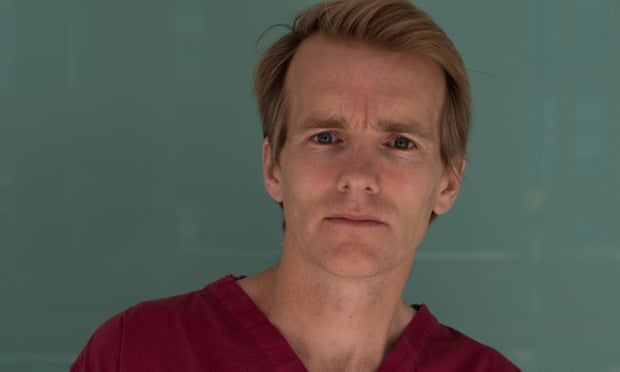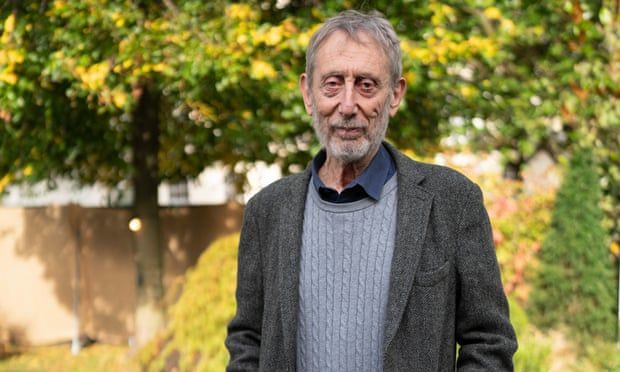
It’s beginning to look a lot like last Christmas: why the UK has Covid deja vu
That old adage of Marx insists that historical events occur first as tragedy, then as farce. The government’s handling of the pandemic in the UK long ago undermined that progression: tragedy and farce have, since the very beginning of the crisis, always been a double act.
The clashing tone of current events feels like a dispiriting festive repeat of all-too-familiar dramas. A week that began with the exposed scandal of Downing Street lockdown parties, and ended with chief civil servant Simon Case stepping down as investigator of those scandals, because of a party in his own office, was also yet another week in which the alarming progress of the virus outpaced government rhetoric and claimed another thousand lives.
This weekend sees a rerun of scrambled Cobra meetings in which once more, despite all recent assurances to the contrary, “nothing is not on the table”. If you have felt that yawning sense of “here we go again”, then that national deja vu is supported in the news archives. Turn the pages back to the Observer of exactly one year ago, and you will find headlines that read: “The new variant, the risks and the vaccine” and “Shops and businesses in despair as curbs halt Christmas bonanza … ” and “Johnson U-turn leaves nation’s plans for Christmas in tatters”.
It is, make a wish, still too early to cut and paste the paragraphs that followed those headlines. But given the unprecedented pace of infection – new Covid cases in the UK seem certain to break daily records until the end of the month, with consequent self-isolation ravaging supply chains and emergency services and businesses – only a diehard optimist would bet against some version of the following from that December 2020 paper being employed in the coming days: “After a week which saw hospital after hospital cut routine operations, the prime minister said he had ‘no alternative’ but to act against a mutation that was ‘up to 70% more transmissible’ than earlier versions. ‘Given the evidence we have on this new variant of the virus and the potential risk it poses, it is with a heavy heart that I must tell you we cannot carry on with Christmas as planned,’ the prime minister said … The libertarian wing of the Conservative party has bridled against the restrictions, asking for exemptions … ”
There are of course some very significant differences to the context of such doomy precedents – most notably the buoyant life raft of the vaccine. Last Christmas, only 350,000 UK citizens had received their first dose of the jab. The miracle of medical research and the logistical efforts of the NHS mean that about 80% of the population is now double-jabbed and, thanks to the accelerated push of the past week, more than half of British adults have now received their potentially Omicron-arresting booster dose.
Even so, with the highly contagious variant moving through vulnerable populations, and perhaps 6 million eligible citizens still stubbornly unvaccinated, the gloomier forecasts of Sage epidemiologists have become harder to dispute.
How are we coping? Among those who have attempted to keep the closest track on the nation’s mental health since the start of the pandemic is Dr Daisy Fancourt, professor of behavioural science and epidemiology, who leads the Covid-19 Social Study, which has monitored the daily anxieties and attitudes of tens of thousands of Britons.
“Something that is really striking this time,” Fancourt told me on Friday, “is that, in general, stress about Covid has stayed really low in recent weeks, despite cases once again getting really high and rising.
“I think that’s partly because people are more used to the disease than they were 20 months ago, and partly the confidence of getting vaccinated.”
Some of the other significant changes in mood are more sobering. “Something that stands out this morning from the latest ONS data is that the number of people who believe that the pandemic is going to go on for ‘longer than the next 12 months’ has doubled in the last year,” said Fancourt. “It was about 20% last Christmas, and it’s now nearly 40%.” The other big – and depressing – shift, she says, “is that the appreciation of the work of frontline health and social care workers has almost entirely vanished.”
We are no longer all in it together. This collective loss of empathy is linked, her data suggests, to political moves like denying the pay increase in England that put a tangible value on the work of NHS staff, and the divisive narrative targeting GPs over face-to-face consultations.
 Jim Down, intensive care consultant and author.
Jim Down, intensive care consultant and author.
On Friday, I also spoke to two of the people who were at the very sharpest end of the earlier stages of the pandemic, and who have lived to tell the tale. Jim Down is a consultant in anaesthesiology and intensive care at University College Hospital in London, and author of the graphic and moving diary of the Covid frontline, Life Support; Michael Rosen, the celebrated children’s author, was himself on life support and in an induced coma for 40 days after contracting the disease in March 2020. Both men are, inevitably, already feeling extreme versions of the anxieties that many of us may be beginning again to sense.
Down is bracing himself for a sequel to his Covid story. “Alongside the worry about how many patients may soon be arriving, there’s also the fear about how many staff will be off with the virus,” he says. “That’s the bit that is already biting quite hard.”
Does the fact that he and his colleagues have all been here before help or exacerbate those anxieties? “On the whole, it helps,” he says. “The first time, I think we were terrified; terrified of the unknown and the scale, and I suppose of the potential risk to ourselves. The second time, we were much better organised. We weren’t worried about running out of ventilators and PPE, but the size of it was huge. Now everyone’s got this sense of: surely not again.”
His intensive care unit has not seen any Omicron patients yet, but there remains a daily flow of Delta-infected patients, most of whom are unvaccinated. “There is always a lag between infections rising and patients coming to us,” he says. “As I understand it, the predicted peak is now for the second week of January.”
The fact that once again those who are most likely to be admitted are those who have refused vaccination for whatever reason must be hard to witness?
“It is not our position to judge people,” Down says. “There is a lot of misinformation – and, anyway, by the time most people come to us they are unconscious. But you can’t help but be a bit frustrated. I find it as difficult when people don’t wear masks, though – because I’m so used to wearing one all the time, and it’s such a simple thing to do.”
One of the things that really comes across in Down’s book is how the sudden scale of mortality affected him. He was haunted by individual deaths, and by conversations with relatives left behind. Can he face another wave of that? “It’s fluctuated, I’ve had bad periods, one earlier this year, where I had a big mental health deterioration. But at the moment, I’m OK.
“A lot of people have had similar things, where it’s crept up on them. I think we have at least got better at talking about it.”
For now, they are planning a regular rota over Christmas, but he has little doubt that will change. “I think it’s particularly hard for nurses,” he says. “Covid patients are so sick and need such a very intense sort of care. And they have certainly seen a lot of people do badly, which is really tough for them. And now it’s happening again.”
 The children’s author Michael Rosen, who spent 40 days in an induced coma after catching Covid.
The children’s author Michael Rosen, who spent 40 days in an induced coma after catching Covid.
Rosen was among those who received some of that care – his book about his illness, Many Different Kinds of Love: A Story of Life, Death and the NHS, includes the moving series of letters that intensive care nurses wrote to him at the end of night shifts at his bedside while he was in a coma. He came out of that state much changed – with impaired sight and partial hearing loss – but with his creative life force intact. He talked originally about it as feeling like a shellshock experience after the first world war. With the news full of Covid again, is he experiencing a kind of PTSD?
“In the period when I came out of the coma,” he says, “I was full of muddle and anxiety. I call it ‘lonely corridor syndrome’ – I don’t want to dignify it as post-traumatic stress disorder, which is an awful thing – but it’s certainly not nice to hear of the great new wave because it does bring back all those memories.”
The lonely corridor he refers to is partly the geriatric ward he was placed in after his coma because of a lack of beds. He came to surrounded by people with severe dementia. “I really had no idea why I was there. And also, I didn’t understand that I’d actually been unconscious for 40 days.”
Rosen replays vivid dreams of his recovery; when he watches Downing Street briefings, he finds himself assailed by the phrase “a little knowledge is a dangerous thing”. It frightens him to imagine those same hospital wards gearing up for Omicron cases.
“My ward was supposed to hold 11 people and they had 24, and half of us were dying. The way one consultant put it to me was: ‘You could be talking to someone and you go out for a pee, and when you come back that person’s gone.’ It was so quick.”
He stays in touch with one intensive care nurse, who kept a journal in which the names of patients were changed. “I was Mr Jacobs,” Rosen says. “There’s two entries that I absolutely adore. One of them is: ‘I said some hail Marys over Mr Jacobs, even though he’s Jewish’. The other says, ‘I walked past Mr Jacobs’s bed. Mr Jacobs is still alive.’”
Rosen is halfway through writing a book on the theme of “getting better” in all its meanings. “My theory is that everybody is trying to get better one way or another,” he says.
You would have to argue that at least one individual in this ongoing national tragedy seems stubbornly immune to that particular strain of self-improvement. Our attention-deficit prime minister has always wanted to present the pandemic as an event with a beginning, a middle and an end. As virologists have long insisted, though, this is to wilfully misunderstand the nature of the challenges. The idea that it would be over by last Christmas or this one (or the next) was always a predictably false promise.
“The pattern,” the Observer’s chief political commentator Andrew Rawnsley wrote of Johnson’s failures of leadership in this paper a year ago, “is one of resisting taking the necessary steps at the time when they would have been most effective, and being compelled to implement them late with more damaging effect.”
Twelve months on, that destructive pattern shows no sign of changing. And the results are something that we all continue to live with.










